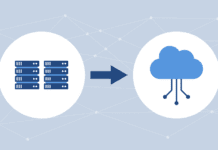EMC is beginning to offer storage security, although the data protection products it will be selling are not purchased or homegrown.
The Hopkinton, Mass., information systems vendor has agreed to resell storage security products from Decru, NeoScale and CipherOptics as part of its Select Program. The program makes it easier for customers to acquire third-party storage networking components that are used with EMC gear, said EMC Select Program General Manager Sean Kinney.
The news comes after a rash of security breaches at information carriers, such as ChoicePoint, and lost tape cartridges from financial institutions, such as Bank of America and CitiFinancial.
These mini disasters have led corporations to look for new means of protecting their clients’ sensitive information.
Decru’s and NeoScale’s appliances encrypt data at wire speeds without choking performance. Both Decru’s and NeoScale’s devices protect data that rests behind the firewall. CipherOptics protects data in-flight on a network.
EMC’s embrace of storage security vendors is an interesting twist, though not a surprising one given that Kinney said he and his team have fielded customer requests to sell storage security products.
“Security is really a fundamental and rapidly evolving requirement that permeates the entire IT stack,” Kinney said. “We believe customers will implement these confidentiality features and appliances as one element of their security strategy.”
Decru is the most prominent and interesting of the new EMC partners. The startup is in the process of being acquired by EMC rival Network Appliance.
Some might balk at the idea of buying gear from a NetApp subsidiary through EMC. After all, NetApp and EMC have competed fiercely in the network-attached storage space (NAS).
Forget all that. EMC has been under the gun from analysts and customers to offer storage security products along with their comprehensive hardware systems, software and services portfolios. EMC quietly bore the criticisms and has been working with Decru behind the scenes to get a deal done for the last two years.
Also, one of the conditions of the acquisition was that Decru would be operated as a separate business unit, according to Decru Vice President Kevin Brown.
“What we’re doing is essentially having a Chinese wall that allows us to work with folks who compete on the storage side,” Brown said. “The fact is there is no homogeneous storage network. Everything out there is heterogeneous.”
Decru has some similar agreements with other NetApp rivals, but Brown stressed that NetApp would not meddle with Decru’s business course as far as picking up new reseller partners.
“We’re going to have multiple partners,” Brown said. “NetApp will be one of those, EMC will be one of those, and obviously we’re working with many of the other large storage and networking firms out there.”
When NetApp picked up Decru last month, it touched off a round of speculation about whether Decru rivals NeoScale, Vormetric and Kasten Chase might get picked off by EMC, IBM, HP or Hitachi Data Systems.
Storage analysts say products from Decru, NeoScale and others have been selling well in the past year, and not just because they are among the best products in their class.
Combine the data loss dilemmas with new compliance regulations, and the notion of major storage vendors offering encryption products to customers seems more like an imperative than an option. The encryption devices and software stop malicious intruders dead in their tracks and help customers meet compliance regulations for preserving data.
Congress and state legislators have been getting in on the action.
The Identity Theft Protection Act (S.B. 1408), co-sponsored by Senate Commerce Committee Chairman Ted Stevens (R-Alaska) and Hawaiian Democrat Daniel Inouye, requires companies, government agencies and educational institutions to disclose to consumers breaches of both encrypted and unencrypted data and imposes fines of up to $11 million for violators.
California already orders institutions to report data loss or security breaches if the infrastructure the data sits on is not encrypted. This puts pressure on banks and other organizations to secure their data better, which in some cases could lead them to the doors of Decru and the other storage security vendors.
Article courtesy of InternetNews.com





